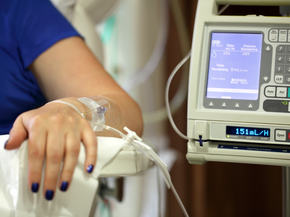
Sepsis
Sepsis is life-threatening and can affect anyone. If you suspect sepsis, go to an emergency room immediately. Err on the side of caution and seek medical assistance.

Sepsis
Sepsis is life-threatening and can affect anyone. If you suspect sepsis, go to an emergency room immediately. Err on the side of caution and seek medical assistance.
Could It Be Sepsis?
Sepsis is a life-threatening response to infection that requires immediate emergency care. If it progresses to septic shock, it can lead to organ failure and even death. Most often, sepsis is caused by a bacterial infection—commonly from the skin (like a cut), lungs (such as pneumonia), kidneys, or digestive system (like E. coli).
Sepsis can develop quickly and affect anyone, at any age. Recognizing the signs and seeking prompt medical attention can save lives.
If you're concerned about sepsis, go to the hospital immediately. Tell them you are concerned about sepsis.
Symptoms of Sepsis (Remember "TIME")

T = Temperature
Body temperature usually rises to fight infection, causing a fever. People with sepsis may experience either high or low body temperature, so look for any abnormal body temperature.

I = Infection
Common infections that may lead to sepsis include lung, skin, urinary tract, and abdominal infections. However, ANY infection can lead to sepsis.

M = Mental Decline
Some people with sepsis show a sudden change in mental status, becoming confused, sleepy or difficult to rouse.

E = Extremely Ill
People with sepsis often report feeling the worst they have ever felt. Look for severe pain or discomfort, shortness of breath, fast heartbeat, chills/shaking, cool clammy skin, and/or a feeling that you may die.
Trusted Sepsis Resources

Sepsis Alliance
Advancing their mission to save lives and reduce suffering by improving sepsis and sepsis prevention awareness.

Society of Critical Care Medicine
Offering the latest, evidence-based adult and pediatric resources for post-ICU sepsis recovery.

Support for Sepsis Survivors
Offering strategies to support recovery and prevent future hospitalizations.

